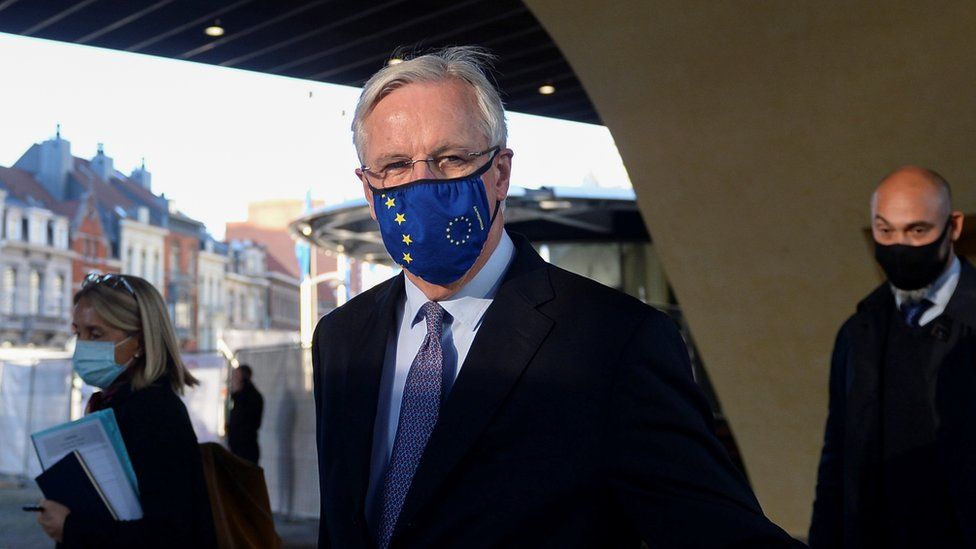Brexit: Differences remain over trade deal, say UK and EU
- Published

The UK and EU have said serious differences remain over a post-Brexit trade deal, as the latest talks came to an end in Brussels.
UK negotiator Lord David Frost said "wide divergences" remained in some areas, despite progress being made.
His EU counterpart, Michel Barnier, said there were "serious divergences" over fishing and competition rules.
Negotiation resumed last month, after a week-long standoff in the wake of an EU leaders' summit.
The two sides are seeking an agreement to govern their trading relationship once the UK's post-Brexit transition period ends in January 2021.
BBC political editor Laura Kuenssberg said talks were likely to continue in London next week, as the time remaining to strike a deal runs out.
She added people involved in the talks suggested the continued uncertainty over the result of the US election was not likely to have an impact.
After briefing MEPs and EU diplomats, Mr Barnier said the lack of agreement in key areas came "despite EU efforts to find solutions".
He added that fishing rights, competition rules and agreement over how a deal would be enforced remained "essential conditions".
Lord Frost said: "I agree with Michel Barnier that wide divergences remain on some core issues.
"We continue to work to find solutions that fully respect UK sovereignty."
Confused by Brexit jargon? Reality Check unpacks the basics.
German MEP David McAllister, who chairs a Brexit group at the European Parliament, said it was of the "utmost importance" that negotiators allowed enough time for the assembly to scrutinise any draft deal.
"We met Michel Barnier and noted with deep concern that the list of fundamental divergences remains long," he added.
In line with other EU trade deals, any agreement would require the approval of the 705-member assembly before it could come into force.
Sticking points
The two sides are seeking to reach agreement on limits on government subsidies for industry, to prevent what the EU regards as unfair competition with the UK.
The UK has committed to agree "principles" for how subsidies are spent - something welcomed by the EU.
However, they are yet to agree how such rules would be enforced - with the EU demanding robust powers in case there are disputes.
The two sides are also haggling over how much European fishing boats should be able to catch in British waters from next year.
Deadline looms
By remaining in the bloc's single market and customs union, the UK has continued to follow EU trading rules during its post-Brexit transition period.
This 11-month period is due to end in December, and the UK has ruled out seeking an extension.
Formal talks began in March and continued throughout the pandemic, initially via video link before in-person discussions resumed over the summer.
If a deal is not done, the UK will trade with the EU according to the default rules set by the Geneva-based World Trade Organization.
- Published2 November 2020